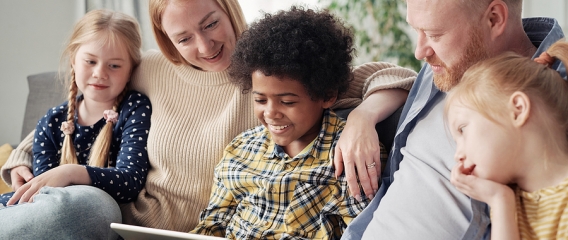Tips for Positive Parenting Through Divorce
Divorce can be a crushing experience, even for couples who remain relatively amicable. No matter how hard it is to lose someone you love and the life you envisioned together, the process gets even harder when children are involved.
Kids are often unwilling participants in divorce. With no say in the matter, they’re just along for the ride, and they may suffer from a range of emotions that are difficult for them to understand and cope with. Grief, anger, frustration, and guilt are just a few negative emotions kids might feel during divorce.
As a parent, your priority is to protect your children, but it can be challenging when you are struggling to get through a lengthy or contentious divorce. What can you do to create stability and help your kids through this difficult transition? How can you practice positive parenting through divorce?
Never Discuss Adult Matters With Children
Divorce will bring up a lot of questions. Kids might naturally want answers about the value of marriage, why your relationship didn’t last, and the nature of love and adult relationships.
There’s a fine line between honesty and revealing things kids can’t fully understand. You never want to drag them into matters that should be kept between you and your spouse.
It’s especially important to avoid discussing adult animosities. Your kids don’t need to know that your spouse cheated or hear your opinion on the matter. They don’t need to know that their parents can’t get along or that you’re fighting over finances.
If you can’t provide honest answers to their questions without crossing a line, there’s no need to lie. Just remind them that both of their parents love them and are committed to their health and happiness, no matter what.
Give Your Kids Space to Talk
Depending on the age of your children, you may start to see issues like anxiety or depression. Divorce can be a traumatic and life-changing experience for kids, and if they’re not able to discuss their feelings, they may start to act out or withdraw.
At some point, you might consider seeking professional help, but a good way to start is by providing opportunities for kids to talk about what’s troubling them. Ask questions about how kids are feeling, and then give them space to talk.
Engage in active listening, where you absorb what they say without judgment, acknowledge that their feelings are valid, and respond with support, encouragement, and feedback if they’re open to it.
Embrace Mindful Co-Parenting
Co-parenting can be hard when you have a contentious relationship with your spouse during and after divorce. You should always try to be positive, respectful, and open to compromise. That said, you don’t have to put up with abuse.
Make sure to create boundaries that protect you so you can maintain your own mental health and provide the support your children need. If your ex makes communication impossible and will not participate in productive co-parenting, do what you can to limit contact without putting your kids in the middle.
Get the Help You Need in a Divorce
Do you need help settling custody and co-parenting arrangements? Contact the qualified and caring team at Gucciardo Family Law today to consult with an experienced attorney.
Too much information?
We focus exclusively on family law matters so we are always available to answer your questions and help.



















Leave a Reply